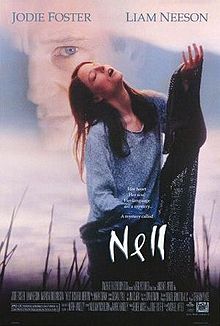Ordinary Characters Can Be Extraordinary
We’ve been going deep into character these last weeks, and I want to offer you some more ideas for developing complex, riveting characters. We hear things like “Your characters need to be larger than life,” meaning they should be extraordinary (extra ordinary? A whole lot more ordinary than the next guy? Sorry, that word got me thinking about how counterintuitive it is!). Okay, I get that to a point. To me, that means they need to be complex, unique, passionate about something.
But I would like to say you can have ordinary characters that are ordinary people, but what makes them engaging and believable is their complex issues that drive them. For we all have them. You could say we are all both ordinary and extraordinary people.
If I’m presented one way, I can seem very dull, boring, average. But if I’m presented another way, I can become compelling, fascinating, deep. It’s all in the presentation. And in tightly developing and understanding those three essential aspects I spoke of in the last post: knowing the character’s core need, their deepest fear, and the lie they tell themselves because of the wound they suffered early on.
Yep, the Superficial Stuff is Superficial
If you start with those elements and get them richly drawn, you can then move on to other aspects of your character. The problem I see is most writers think the way you identify and distinguish one character from another is by outward things: appearance, hairstyle, dress, manner of talking, etc., so they put these characters in their story and what you find is a lot of description about them that only pertains to outward things. There’s a paragraph on how they look , what they’re eating, and the things they talk about—which are shallow.
Well, for good reason. These are the only things the author has spent time developing. And frankly, when I read a novel, the last thing I care about is the protagonist’s hairstyle. Now, with a book like The Devil Wears Prada, you have to be all about appearances. But even so, to have a great story and engaging characters, you would need to get under all that hair and makeup to find the not-so-beautiful person beneath who has needs and fears, and believes lies.
So before I go on to some other techniques and suggestions on how to create great characters, let me give you a few examples of how I thought up these things for my main characters in relation to the needs of the plot. Also, I think having a little understanding of psychology helps, and if you don’t know much about–for example—family dynamics, you can read up on it.
In the family saga novel I wrote last year, Intended for Harm, I had nine family members I tracked over a forty-year period. My novel is a modern retelling of the Bible story of Jacob and his son Joseph, and it has many themes. The main theme revolves around the protagonist, Jake, which is all about his bad relationship with his father and the type of father he becomes to his own children.
You could say, in general, my theme is about fathers and sons. So I knew Jake’s big lie stemmed from the hurt meted out by an unloving father who favored Jake’s twin over him (you might remember the story of Isaac loving Esau more than Jacob). His inward lie is he believes he is not worthy of love (of course). His outward lie is that he believes there can’t be a God who is a loving father type because fathers suck. His greatest fear is that he’ll be a terrible father and end up just like his father (which happens, of course). His core need is to have his father’s love, but he never gets it (of course. Makes me think of Robin Williams’s great performance in Seize the Day). And deep inside, what he really wants and needs is God’s love, and that he does realize he has, in the end (of course).
Of Course, Of Course
Now, no doubt you noticed I put “of course” after everything up there. Why would I do that? Don’t I want to sound innovative and original? Write a unique book? I’m giving away the fact that I wrote something predictable!
Of course I did!
Now, maybe you’re even more confused. But, think. We want themes that are universal, that people all over can relate to. There are no unique new themes that are universal to all. (Strictly Ballroom fans: Can you hear the words blaring: “There are no new steps”?) And human behavior is such that it behaves for the most part in a logical way.
So of course if Jake feels hurt by his father and has father issues, he’s not going to believe God loves him. And we all swear we will never turn out like our parents but . . .
It’s not a cop-out to give your characters predictable motivational behavior. These things work and make sense because they’re believable. If I had set Jake up so that his core need and fears were in contradiction or unrelated to the lie he believes and the hurt he’s suffered that has created his persona, I’m not going to have a believable character.
Does this make sense? If his core need is to get his father’s approval, but his greatest fear is falling off high places, and the lie he believes is he’s the smartest human ever born, he’s going to come across as a lunatic in need of a nifty straitjacket. Which is fine if the theme of my novel is revolving around insanity.
Next week I’ll go into some other ideas using additional character-developing techniques I utilize in planning my novels.
This week, spend some time mulling over your characters and these three essential components to their personalities. Spend more time thinking about their inner motivation instead of their outward attributes. Think of some hurt in their past that will serve the plot and premise of your story in the best way. Feel free to share your findings in the comments below.












I want to let you know how much and how this post helped my story line. I substituted my story line, theme and character’s names in the paragraph from your post that began with “In the family saga novel I wrote last year”. Thinking how my characters got their wounds nailed down each one’s back-story more which now has given me a better villain for my story. Thank you so much!!!!!
Good advice, C.S. Well rounded characters can save a dreary plot, but no matter how well conceived a plot may be, dreary characters will cause the reader to abandon the book or story before the conclusion.
Thank you very much for this .. have bookmarked it for further exploration.
Thank you so much. I am just starting a novel based on my grandmother and her sister, neither of whom I really met. My father told many stories of his mother but none of her sister. I recently attended a family reunion and learned of their history which will be the basis for this fictionalized accounting. I’m sure that by applying your three principles, two extraordinary ordinary women will come to life.
I’m so glad I stumbled on your article. I’m writing my first novel and this is going to help me a great deal. It’s amazing how you portrayed Joseph and his family.
I’ve subscribed to your blog for updates. Thanks.
You’re welcome! I hope you’ll go back and read the posts from Jan. 1 onward as they start at the beginning and go through a whole year of instruction. I’ll be compiling and putting the book out of all the posts and much more right before Xmas.
I like that trilogy: core need, deepest fear, lie(s) we tell ourselves. Figure out these aspects and it becomes easier to develop a more believable character (both the superficial and the crucial internal stuff). Thanks again
I agree that a character needs more than an outward appearance to become real to the reader. In my Shamra Chronicles I spend a lot of time on character development — what the character thinks and how they react to given circumstances. A physical description is required but it is the least important of what I want to get across to the reader. I will only continue a series as long as the character continues to grow and change. Too often after a few books the author has said all that is to be said about a character and from there on you have a cardboard character doing whatever is required to resolve the book’s conflict. When I get to that point in a series I would rather abandon the character OR change the main focus to another character. The formerly-main character becomes a secondary character and someone else is in the forefront. I’ve done this with my Shamra trilogy. At the end of the third book the main character’s twin daughters become the central characters. If I write a 4th book the focus will be on the twins. Dara, the main character of the series, will become less important, though she’s still there.
I’ve been reading through your blog over the last week or so. This is such good stuff! Thank you for sharing your knowledge!